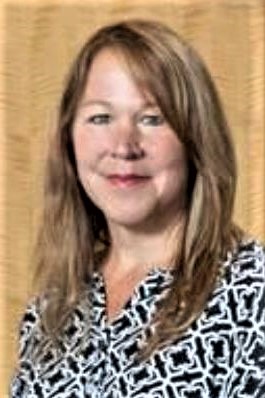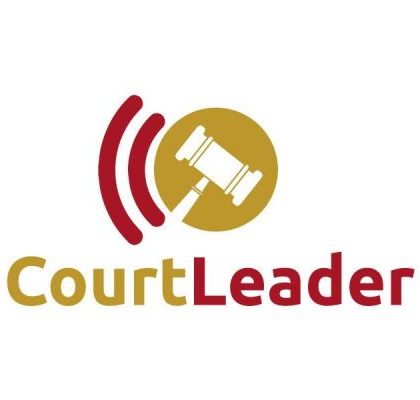Court Leader’s Advantage Video Podcast: February 2021 Episode

Brought to You in Cooperation with NACM

Back in October of 2019, for most courts, working remotely from home was a privilege granted to a small number of court employees. It seemed to be granted mostly to Court Technology workers and Executive Office staff who were working on some major project. Who would have thought that just six months later, courts across the country would be engaged in promoting telework to many if not most of their employees? This has been a profound cultural shift that is almost unheard of in court administration.
We now have close to a year’s experience with allowing telework on a widespread basis.
- What has been the experience of court administrators and clerks of court with telework?
- What productivity improvements have we seen?
- What are the obstacles that we have encountered and how have we steered around them?
- What lessons have we learned and what advice do we have to share?
We are talking with court administrators from around the country about the effect teleworking has had on the courts including the technological, cultural, and operational aspects of this dramatic shift in how court work gets done.
Watch the February 2021 CLAPodcast Episode 42.31 minutes
Listen to be February 20201 CLAPodcast Episode 40.45 minutes
About Our Co-Host and Our Panelists

Alyce Roberts is recently retired as the Special Projects Coordinator for the Alaska Court System. As a member of the court’s senior staff, she was the AOC’s primary liaison with the clerks of court. In this capacity, she was responsible for developing the annual statewide clerks of court conference program, facilitating the sessions and serving as a presenter. Alyce regularly worked with court colleagues and justice partners to propose revisions to court rules and develop statewide clerical procedures. She served on the Alaska Supreme Court’s Civil Rules Advisory Committee. She has worked for the Alaska Court System since 1989, holding a number of positions including clerk of court in Anchorage (the state’s largest general jurisdiction court). She has served on the National Association for Court Management’s (NACM) Board of Directors, chairs NACM’s Communication Committee, and she is a Fellow of the Institute for Court Management (2010).

Terri March is the Court Administrator for the North Las Vegas Justice Court in Clark County, Nevada. She has been with NLVJC since 2004. Terri is a graduate of the University of Nevada, Las Vegas. With a bachelor’s degree in Accounting and a Master’s of Business Administration, she spent 17 years in the hotel/casino industry in Las Vegas. Terri held various positions during that time, including Auditor, Casino Analyst, Manager of Financial Planning and Analysis, and Director of Database Marketing.
Upon leaving the hotel/casino industry, Terri began her public sector employment as a Budget Analyst with Clark County, Nevada, and obtained a Master’s of Public Administration during that time. Her assigned departments as a budget analyst included the courts, prosecutor, and public defenders, which spurred an interest in the judicial system.
After joining the courts, Terri furthered her education by completing the National Center for State Courts’ Court Management Program in 2006, and became a Fellow of the Institute for Court Management in 2009 after completion of the Court Executive Development Program. Her thesis, “Planning for the Future,” received the Vice President’s Award of Merit for Applied Research.
In March 2018, Terri completed a Master of Arts in Security Studies through the Center for Homeland Defense and Security at the Naval Postgraduate School in Monterey, California. Research completed for the program’s required thesis was later used to conduct a distance learning webinar for the Nevada Supreme Court titled, “Weapons of Mass Distraction: Strategies for Countering the Paper Terrorism of Sovereign Citizens.”
A lifelong learner, Terri continues to pursue education through certification as ICM Faculty for Nevada, and is currently certified to teach Budget & Fiscal Management and Accountability and Performance Measures.

Sam Hamrick has been the Court Executive Officer for the Superior Court of California for the County of Riverside since 2014. The Court comprises 15 courthouses, 1,200 employees, and a $180 million court operations budget. Sam was previously the Clerk of Court for the United States District Court for the Southern District of California (San Diego). Before that he held positions as the Chief Deputy Clerk for the U.S. District Court for the Northern District of Georgia (Atlanta); Chief Deputy Clerk for the U.S. District Court for the Northern District of West Virginia, (Wheeling); Administrative Analyst/Deputy Clerk of Court for the U.S. District Court for the Western District of North Carolina; and Law Clerk to Chief Federal Court Judge Richard L. Voorhees.
Sam received his bachelor’s degree in Political Science from the University of North Carolina; he received a Master of Public Affairs with a concentration in Public Administration from Western Carolina University; and he received a Juris Doctor from Campbell University School of Law.
Sam was awarded the (Administrative Office) Director’s Award for Outstanding Leadership and the Federal Court Clerks Association “Angie” Award for excellent service in court administration, ethics and improving the administration of justice.

Trial Court Administrator Debbie Spradley grew up in the Portland, Oregon and Vancouver, Washington area, and then moved to San Diego, California after high school. She attended California State University, San Marcos and received her Bachelor of Science degree in Business Administration in 2001. She returned to the Pacific Northwest in 2004.
Debbie joined the Clackamas County Circuit Court in 2004 as a supervisor in the Civil Case Unit, transitioned to Court Manager in 2005, and became the Trial Court Administrator (TCA) in 2011. She worked at the San Diego Superior Court in California for fourteen years prior to joining the Clackamas County Circuit Court. She has broad experience in all operational areas of the court and has worked in a management role in the court for twenty years.

Courtney is passionately dedicated to providing the citizens of Missouri with a fair and unbiased judiciary through education and collaboration with the other branches of government, our community and national partners and providing our judicial staff with the tools to be successful in this fast-paced environment. Her journey in the judiciary started in 2012 in her hometown of St. Charles, Missouri as a court clerk then taking her to Jefferson City to work with the Office of State Courts Administrator and on to the Missouri Supreme Court to serve as the state’s municipal division courts monitor. Today Courtney is the Director of the St. Louis County Municipal Division where she continues to pursue providing educational opportunities to municipal divisions and clerks through various committees and educational groups of the state while promoting cultural and procedural reform progression. It is her great honor to partner with judicial partners in Missouri and across the nation.
Do You Want to know More?
Riverside County Telework Policy
Clark County Telework Application and Agreement
Clark County Telework Checklist

You know, when I first read your post about the Alaska Court System’s experiences with telework, I was excited to hear how well it has been going! It is a great idea to allow employees who work remotely to feel a part of the team still. Some employers may worry that this will lead to less productivity or a lack of accountability, but it seems like there are many advantages from what you have shared so far. We’ve witnessed people who use HR application software, https://hrapp.in/ tend to be happier at work, more productive, and less stressed-out.
LikeLike
Since I hosted the episode I did not express my opinion on teleworking and productivity. Privately, I want to review the study that find that teleworking is more productive. When was the study conducted? How many participants were involved? What kind of work was involved? I am not denying the result, but I do think it is worth researching the background of the study or studies a little more.
LikeLike